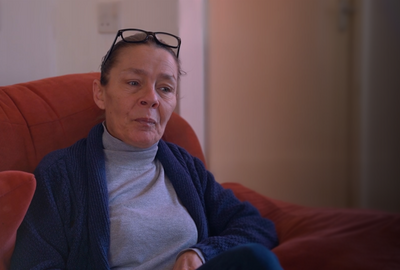<p>Randstad Education Director Stewart McCoy was invited to attend and contribute to what became a heated debate on the Travel and Subsistence legislation at the “Recruitment International” compliance conference at Lloyds Bank HQ in London.<br><br>
On Tuesday 8th March 2016, Recruitment International hosted its annual compliance conference for over 110 recruitment professionals at Lloyds Bank HQ in London.<br><br><em> Delegates heard from a range of compliance experts representing both recruitment and supplier businesses, with the potential impact of legislation changes, including Travel and Subsistence expenses, at the heart of the talks.<br><br>
Speakers included Adrian Marlowe, managing director of Lawspeed, chairman of ARC and director of SiR, Jeni Howard, Business Improvement Manager at Scantec Personnel and Louise Rayner, founder of NumberMill Consulting & NumberMill Accounting.<br><br>
Ben Stoneham, CEO of NowWeComply and Julia Kermode, chief executive of the FCSA also added value to the event while the event was rounded off by an engaging Q&A session with a panel including Terry Hillier, founder and managing director of RACS Group, Leah Seltzer, group head of Quality and Compliance for New Directions, Belinda Brooke, director of Legal & HR at Morgan Hunt and Stewart McCoy, operations director at Randstad Education and chair of the REC Education Sector Group.1</em><br><br>
Stewart McCoy of Randstad Education adds “The new Travel and Subsistence (T&S) legislation comes in to force in April 2016. With only 4 weeks to go, recruiters that utilise the services of umbrella companies to pay some or all of their workers are still battling with the guidance. It’s a real challenge trying to make sense of the ambiguous descriptions of those people who will be affected by the new T&S Legislation. HMRC Guidance states that anyone who is under Supervision, Direction or Control (SDC) as to the manner in which the worker provides the services will no longer be able to claim tax relief on their travel. SDC is used as the measure to determine if a person can claim tax relief on their expenses and HMRC have indicated that they intend SDC to apply to everyone that works for an agency, unless there is evidence otherwise. Identifying what would constitute evidence is where the clarity is required. The actual legislation won’t be published until later this month, leaving just 2 weeks to finalise the plans for hundreds of thousands of workers in all sectors from construction and office workers to nurses, social workers and teachers. <br><br>
Currently any temporary worker, including supply teachers and teaching assistants that provide their services via an agency can be paid by an umbrella company, allowing them to offset the cost of travel to and from their temporary place of work against their income tax. This generates a small saving of around 20% of their travel costs. This modest tax relief can help to encourage people to travel a little further than they normally would, to provide their services to companies or in the case of Randstad Education, schools in all areas of the country. This includes schools in rural areas where teachers are in short supply. <br><br>
The new rules mean that from April 2016 anyone who is under SDC of another person will no longer be able to claim this tax relief. It’s believed that the chancellor, George Osbourne is including this move as part of a bigger plan to reduce so called tax-avoidance schemes”. It is estimated that this will allow the chancellor to collect an additional <em>£155 Million in 2016/17 through taxation</em>. 2<br><br>
The subject dominated the compliance conference in London, and it was clear that recruitment agencies trying to do the right thing were feeling lost when it came to being able to decipher the details of the <em>draft legislation</em>3. Conflicting advice is also common with some lawyers and QCs insisting that Teachers will not be under SDC and that HMRC should be challenged on this. McCoy added that “Any such review could take months if not years and with just weeks to go, agencies need to make a decision now as to how they will implement the legislation. Randstad Education have consulted with tax lawyers and the umbrella companies that they work with and have reached the conclusion that in the interest of all parties, Randstad Education are treating all teachers as being under SDC in schools. <br>
If a successful challenges is achieved then we will review the situation but we can’t operate under such uncertainty and that’s why we have reached this decision early so that we can go about running our business, supporting 2500 schools every day.” <br><br>
This will mean an end to the current arrangement of supply teachers being able to claim T&S tax relief. Randstad Education have written to all supply teachers working through umbrella companies and advised them that the umbrella companies will be in touch to discuss the changes. “It’s unfortunate that the government have taken such a broad brush approach because in the case of teachers, they will be under a little more of a squeeze each week in relation to their take home pay at a time when schools really do need the support of flexible labour.”</p>
<p><em>1 Recruitment International https://www.recruitment-international.co.uk/blog/2016/03/ri-compliance-… </em></p>
<p><em>2 HMRC https://www.gov.uk/government/publications/income-tax-employment-interm… </em></p>
<p><em>3 HMRC https://www.gov.uk/government/publications/income-tax-employment-interm…;
read more about careers in teaching.
see all articles-
 29 April 2024
29 April 2024the impact of randstad's tuition services - a parent's and carers perspective - spring 2024.
-
 29 April 2024
29 April 2024our spring 2024 tutor survey results.
-
 08 February 2024
08 February 2024our autumn 2023 tutor survey results
-
 30 January 2024
30 January 2024the impact of Randstad's tuition services - a parent's and carers perspective
-
 11 July 2023
11 July 2023maths teacher jobs: how to successfully apply.
-
 01 June 2023
01 June 2023teacher resignation dates and notice periods in the UK 2023.